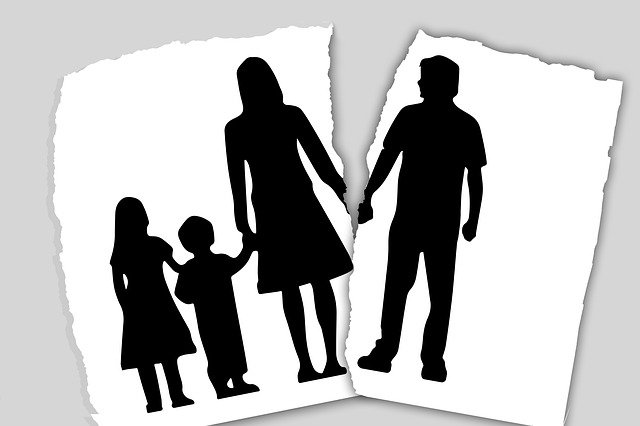Guardians Ad Litem in Family Court – Frequently Asked Questions
Guardians Ad Litem in Family Court – Frequently Asked Questions
 Divorce is a complex process made even more challenging when children are involved. If you have children, deciding how to structure your family’s future to best meet their needs is one of the most important decisions you will make in the divorce process.
Divorce is a complex process made even more challenging when children are involved. If you have children, deciding how to structure your family’s future to best meet their needs is one of the most important decisions you will make in the divorce process.
Legal custody, physical placement, and child support are the three main elements that will need to be decided upon for children in a divorce proceeding. “Legal custody” describes the responsibility of making major decisions for the children such as education and healthcare. “Physical placement” describes where and with whom the child lives. “Child support” describes the financial support of the child. If you and your partner disagree on one or more of these major elements, you will need to participate in a mediation process to resolve your differences and move forward.
If you are unable to reach a satisfying decision on these issues even with the help of a mediator, the family court judge may appoint a specialized attorney, known as a “guardian ad litem” (GAL), to assist in the decision-making process. Below are answers to the most frequently asked questions about the role of a GAL.
What is a guardian ad litem (GAL)?
A GAL is a licensed attorney whose role is to investigate, determine, and represent the best interests of the children involved in a divorce proceeding.
The responsibilities of a GAL include investigating the ins and outs of the child’s life and experience as part of a family, participating in negotiations and mediation, and advancing a position on major areas of a divorce proceeding that involved children: legal custody, physical placement and, where appropriate, child support.
The GAL is not the child’s attorney, nor do they fulfill any of the duties of a parent or guardian. Rather, the role of the GAL is to advocate in court on behalf of the best interests of the child.
Why might a GAL become involved in a divorce case?
If the parties in a divorce proceeding cannot come to an agreement on major issues affecting children, like physical placement and legal custody, they move to mediation. If they still cannot come to an agreement or mediation is not possible or appropriate in the situation, the court will appoint a GAL.
A GAL may also be appointed if a judge is concerned about the welfare of the child or children involved in a divorce proceeding. A GAL may be appointed at any time during the case but is usually brought on in the beginning. One situation in which a court may decide not to appoint a GAL is in a modification proceeding where a judge feels this support is unnecessary.
How is a GAL appointed?
Either the family court commissioner or judge in a divorce case appoints a GAL, and may do so on their own accord or when requested by one of the parents. How the GAL is chosen depends on the law of the county – the GAL is either chosen from a list of attorneys or is specifically contracted by the county to fulfill this duty when necessary.
What is the role of the GAL?
The ultimate goal of the GAL is to identify and represent the best interests of the child or children involved in a divorce case. In fulfilling this role, a GAL may be involved in negotiation of settlements, conduct investigations into allegations of abuse or negligence, hire expert consultants, conduct witness interviews, comment on agreements or parenting plans submitted, and engage in court proceedings.
Either parent in the divorce proceeding can request a status hearing on the work of the GAL. However, this can only happen 120 days after the appointment date. A second hearing can be requested 120 days after the first status hearing.
Does the GAL meet with the parents and child/children?
Yes. The GAL meets with both parents in their office, usually holding separate meetings with each. The GAL will decide if and when to meet with the child or children and, if they do decide to meet, what location would be most appropriate for the meeting.
What does a GAL’s investigation into issues that affect the child look like?
As a divorce attorney in Milwaukee, a GAL only investigates issues that are relevant to the case. Much of the GAL’s investigation falls under the umbrella of “informal discovery,” or interviews with parties involved in or relevant to the case. The GAL may ask for the input of experts such as a psychologist or social worker and may request that the parents sign a release authorizing them to review school and medical records. If one or both parents have issues with alcohol or drugs, a GAL may request that the judge order screening tests.
Other elements of a GAL’s investigation fall under “formal discovery,” including interrogatories, requesting documents, and conducting depositions.
What factors does a GAL consider in their investigation?
A GAL considers a number of factors before making a determination and recommendation to the court. Some of these factors may be: the wishes of the parents and child/children; whether there has been abuse or drug or alcohol use that has impacted the child; the safety of all parties involved; the age and developmental needs of the child; the ability of the child to adjust to their living situation, educational situation, and changes in home life; the relationship of the child to their parents and extended family; plans put forward by the parents for supporting and caring for the child; the testimony of experts like social workers and health care professionals; the mental and physical health of the parents; the relationship between the parents and their perceived ability to cooperate in the future on the needs of the child; and many other important factors.
What happens after a GAL completes their investigation?
After completing their investigation, the GAL usually gives the parents and attorneys a preliminary summary of what they plan to put in front of the judge. After this preliminary summary, the attorneys and parents meet to discuss the findings and see if they can reach an agreement. If they cannot, the case proceeds to trial before a judge, where the GAL shares their findings and final decision is reached.
How is the GAL paid?
The judge in a divorce case decides who will pay for the GAL. Usually, they determine that the parents will split the cost of the GAL. In cases where the judge determines that one or both parents are unable to pay, the county may become responsible for payment. However, in this case, the parents are still responsible for paying any fees and may be required to pay back the county over time.
Can I request to change GALs?
Only a judge can remove a GAL from a case and there are very few circumstances in which they would decide to do so.
How long is a GAL involved in a divorce case?
Statute dictates that a GAL serves in their role until one of two things happen: either the parents reach a written agreement resolving the relevant issues or the judge makes a decision in the case at a hearing.
A judge may decide to dismiss a GAL if they decide it is no longer necessary to employ these services. In case of an appeal, the same GAL is involved unless the judge says otherwise. If a new motion is filed, the judge decides whether to appoint the same or a different GAL to represent the interests of the child.



